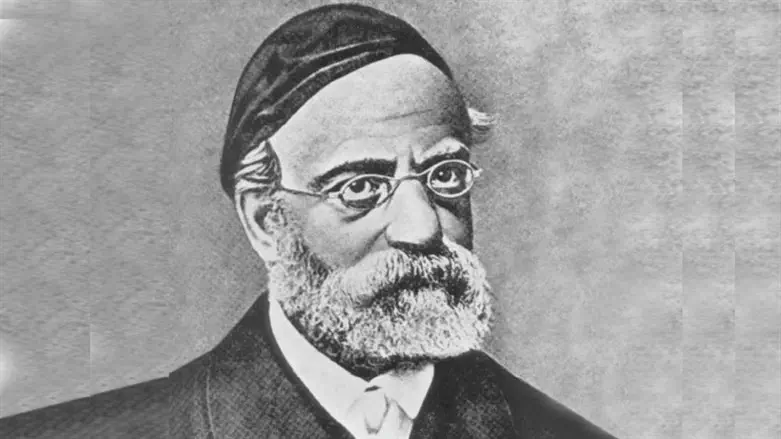
Secular society often stresses the importance of "working through one's feelings" in the aftermath of a tragedy. Therapists, for example, often encourage people to express and delve into their emotions.
True consolation, however, comes first "not so much to the heart as to the intelligence," Rav Samson Raphael Hirsch writes in his commentary to this week's parsha.
After Yaakov passed away, Yosef's brothers feared that their relationship with their brother whom they had sold into slavery would change. Yosef reassured them, though, that their fear was unwarranted. And he did so -- the Torah testifies -- not by speaking to their heart but on their heart: "Vayinachem osom vayedaber al libam" (Bereishis 50:21).
In other words, he spoke in such a manner that "his words prevailed over their feelings," writes Rav Hirsch. He reminded them that Hashem in some sense wanted them to sell him into slavery so that he would eventually become viceroy in Egypt and sustain the family during the great seven-year famine.
Rav Hirsch points out that consolation and regret share the same Hebrew root: n-ch-m. For both involve a mental reversal. What a person once saw in one light, he now sees in a different light. He once took pride in his actions. Now he doesn't and thus regrets them. He once regarded an event as incomprehensibly evil. Now he doesn't and thus is consoled.
The Gemara (Bava Kamma 38a, Rav Hirsch's interpretation) prohibits a mourner from saying, "What can one do? One must accept what can't be avoided." The ancient stoic philosophers advised man to nurse precisely this attitude, but the Torah does not. According to Rav Hirsch, "real consolation...awakes the consciousness that if one were able to see through and over all the conditions and results and consequences as G-d can and does, one would not alter what has happened even if one could." It "brings the conviction to one who has suffered pain and grief that this, too, leads to ultimate good and everlasting happiness."
Perhaps some of us have heard the following story: A few hundreds years ago, the parents of a righteous young lady arranged for her to be married to a budding rabbinic scholar. She traveled to his city to marry him but, upon seeing him for the first time, told her parents that she couldn't possibly marry him. He might be brilliant and holy, but his appearance repulsed her. He was a hunchback.
The young scholar received the news with equanimity. But before the shidduch was officially called off, he asked for permission to speak to the young woman privately. At their wits' end, her parents agreed to the unusual request. After she entered his presence, the budding scholar looked at her and quietly shared the following: "Right before I was born," he said, "heaven showed me the contours of the life I was destined to live on this earth. All seemed fine until I was shown a vision of my future wife. She was a hunchback. I begged heaven: 'Please don't let her suffer like that. If necessary, afflict me with this physical deformity in her stead. Just please spare her this humiliation.' Heaven agreed to do so and transferred her hunchback to me."
After hearing these words, the young woman changed her mind and gladly agreed to marry this scholarly, and sensitive, soul.
What had changed her mind -- what had consoled her -- was a new perspective. Since her perspective changed, her feelings changed.
When tragedy strikes, a listening heart or caring presence is usually the most immediate remedy, but in the long run, only a shift in one's thinking will truly console someone. "The mind rules the heart," Judaism famously tells us. If we see the big picture as G-d sees it -- or at least recognize that this picture exists, even if we can't always understand it -- we will be consoled.
Rav Samson Raphael Hirsch (1808-1888) – head of the Jewish community in Frankfurt, Germany for over 35 years – was a prolific writer whose ideas, passion, and brilliance helped save German Jewry from the onslaught of modernity.
Elliot Resnick, PhD,is the host of “The Elliot Resnick Show” and the editor of an upcoming work on etymological explanations in Rav Samson Raphael Hirsch’s commentary on Chumash